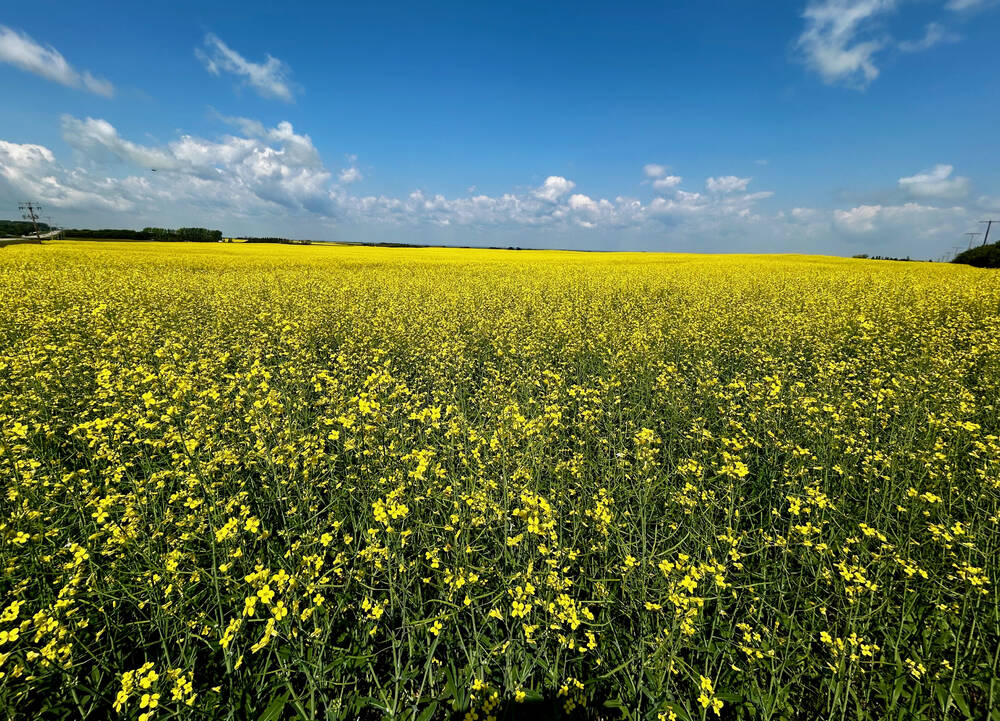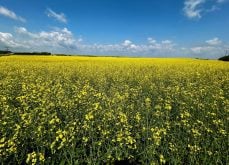A ground beef recall has expanded across Canada and into the United States.
More than 210 products from an XL Foods facility in Edmonton are included in this voluntary recall. It covers products processed from Sept. 16-22. The first recall involved beef products going back to Aug. 16 when tests detected E. coli O157:H7.
The recall covers all of Canada as well as California, Michigan, Nebraska, Oregon, Texas, Utah, Washington and Wisconsin for a variety of beef products including beef patties, meat loaf and ground beef.
Read Also

China snaps up Australian canola after trade spat with Canada, sources say
Chinese state trading firm COFCO has bought up to nine 60,000-metric-ton cargoes of Australian canola, three trade sources told Reuters, after Beijing last month imposed preliminary anti-dumping duties on imports of the oilseed from traditional supplier Canada.
“We don’t know the total volume, just that there is a lot of product in a lot of places,” said Reynold Bergen of the Canadian Cattlemen’s Association.
The Canadian Food Inspection Agency is investigating the facility’s preventive control measures, food safety procedures, laboratory methodology and equipment and quality systems.
No confirmed illnesses have been linked to this recall, but the CFIA is collaborating with provincial and federal public health officials. A Calgary child has been hospitalized after eating a beef burger during the Labour Day weekend, but so far it has not been linked to the recall.
All food processing plants have written codes of practice to deal with food safety and hazard analysis critical control points. This recall does not mean every shipment was contaminated, said Rob McNabb of the CCA.
Recalls of this type consider the time leading up to when the contamination was detected and after the product was taken out of production to ensure it was not building up, he said.
“The size of the recall isn’t necessarily the size of the problem, but it is the accepted approach recall,” he said.
Researchers are studying how to control this bacteria and other potentially dangerous pathogens that could be found when animals are processed.
Canadian plants use steam or hot water sprays containing products such as citric acid to kill bacteria.
Irradiation has not been approved in Canada.
Vaccines against E. coli target only a single pathogen.
“We can’t have an individual fix for every bacteria that comes along,” Bergen said.
“It works against E. coli O157:H7, but there are other E. colis that we want to control as well, or listeria or salmonella.”
Food contaminated with E. coli O157:H7 may not look or smell spoiled, but consumption of food carrying this bacteria may cause serious and potentially life-threatening illnesses. Symptoms may take one to 10 days to appear.
Anyone who has the recalled product should throw it out or return it, the product code and receipt to the store where it was bought.
Consumers are reminded to cook ground beef to an internal temperature of 71 C to kill bacteria.
Wash hands frequently, and keep cooking and handling surfaces clean. Raw product should be used within two days of purchase, while frozen product can be kept for six months. Freezing stops the growth of bacteria, but it does not kill it. Thaw meat in the fridge.
The Public Health Agency of Canada said E. coli infections may be caused by:
• improperly cooked beef
• raw fruits and uncooked vegetables, including sprouts
• untreated drinking water
• unpasteurized milk, including raw milk cheese
• unpasteurized apple juice/cider
• direct contact with animals at petting zoos or farms
Food can also be contaminated when it is handled by a person infected with E. coli, or from cross-contamination because of unsanitary food handling practices.
Raw fruit and vegetables can become contaminated in the field by improperly composted manure, contaminated water, wildlife or poor hygiene by farm workers.
For more information about the recall, visit www.inspection.gc.ca/recalls.















